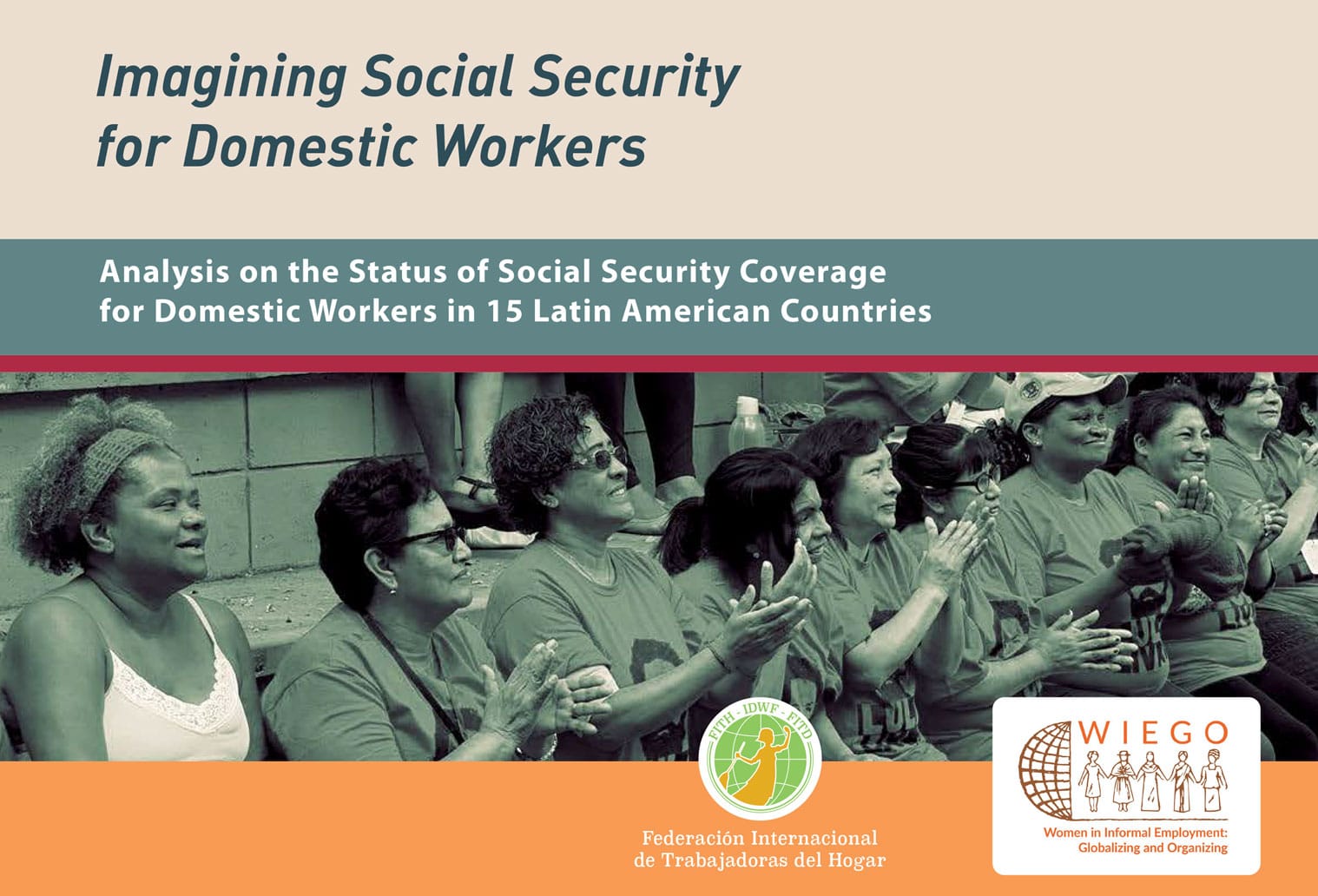Imagining Social Security for Domestic Workers: Analysis of the Status of Social Security Coverage for Domestic Workers in 15 Latin American Countries
This report seeks to provide a comprehensive regional overview of domestic workers' situation regarding social security that reflects recent changes and the impact of such changes, as well as the opinions of organized domestic workers.
Research in 15 Latin American countries – Argentina, Brazil, Bolivia, Chile, Colombia, Costa Rica, the Dominican Republic, Ecuador, El Salvador, Guatemala, Mexico, Nicaragua, Panama, Paraguay and Peru – has been undertaken at the regional and country level to understand domestic workers' access to social security. The study explores regulations and regulatory changes, compliance with such regulations, and how the regulations affect domestic workers in practice.
Domestic worker leaders and the general secretaries of 24 unions shared their knowledge in the study, which was done jointly by the International Domestic Workers Federation (IDWF) and WIEGO.
This report has four sections. The first contains a summary of the recognition of domestic workers' rights under the laws of the countries under analysis. It provides figures showing observance of these rights. The second section shows the main findings, with subsections analyzing the characteristics of social security systems, the benefits granted to domestic workers, registration requirements and conditions, procedures, oversight, incentives and campaigns, the situation of migrant domestic workers and measures adopted during the COVID-19 pandemic. The third section describes domestic workers' experiences of advocacy, negotiation and defence of access to social security, as well as the strategies they employed in this work. The final section looks at future challenges.
This publication is available in English, Portuguese and Spanish. You can also access the executive summary in English, Portuguese and Spanish.
View list of all: Research Reports

